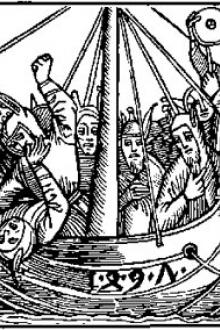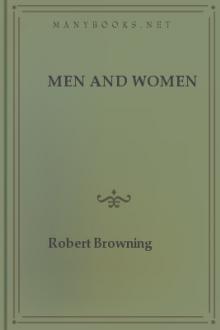Genre Poetry. Page - 1

n examined
by some of the best Judges, and is thought qualified
to write them.
His Excellency THOMAS HUTCHINSON, Governor.
The Hon. ANDREW OLIVER, Lieutenant-Governor.
The Hon. Thomas Hubbard, | The Rev. Charles Chauncey, D. D.The Hon. John Erving, | The Rev. Mather Byles, D. D.
The Hon. James Pitts, | The Rev. Ed. Pemberton, D. D.
The Hon. Harrison Gray, | The Rev. Andrew Elliot, D. D.
The Hon. James Bowdoin, | The Rev. Samuel Cooper, D. D.
John Hancock, Esq; | The Rev. Mr. Saumel Mather,
Joseph Green, Esq; | The Rev. Mr. John Moorhead,
Richard Carey, Esq; | Mr. John Wheat ey, her Master.
N. B. The original Attestation, signed by the above Gentlemen,
may be seen by applying to Archibald Bell, Bookseller,
No. 8, Aldgate-Street.
*The Words "following Page," allude to the Contents
of the Manuscript Copy, with are wrote at the
Back of the above Attestation.
P O E M S

nder cover
that wanted light--
pears wadded in cloth,
protected from the frost,
melons, almost ripe,
smothered in straw?
Why not let the pears cling
to the empty branch?
All your coaxing will only make
a bitter fruit--
let them cling, ripen of themselves,
test their own worth,
nipped, shrivelled by the frost,
to fall at last but fair
with a russet coat.
Or the melon--
let it bleach yellow
in the winter light,
even tart to the taste--
it is better to taste of frost--
the exquisite frost--
than of wadding and of dead grass.
For this beauty,
beauty without strength,
chokes out life.
I want wind to break,
scatter these pink-stalks,
snap off their spiced heads,
fling them about with dead leaves--
spread the paths with twigs,
limbs broken off,
trail great pine branches,
hurled from some far wood
right across the melon-patch,
break pear and quince--
leave half-trees, to

e one sentence, and is generally read at onesitting. Sir Joshua Reynolds, meeting it in a country inn, began toread it while standing with his arm leaning on a chimney-piece, andwas not able to lay it aside till he had finished it, when he foundhis arm totally benumbed. In 1745, Johnson issued proposals for a newedition of Shakspeare, but laid them aside for a time, owing to thegreat expectations entertained of the edition then promised byWarburton.
For several years, except a few trifles in the Gentleman's Magazine,and his famous "Prologue delivered at the Opening of Drury LaneTheatre," he seems to have written nothing. But in 1745 appeared theprospectus of his most laborious undertaking, the "English
Dictionary." This continued his principal occupation for some years,and, as Boswell truly observes, "served to relieve his constitutionalmelancholy by the steady, yet not oppressive, employment it securedhim." In its unity, too, and gigantic size, the task seemed fitted forthe po

o! my songs have crossed the ocean
But the voice of my emotion finds no word.
SEE?
If one proves weak who you fancied strong,
Or false who you fancied true,
Just ease the smart of your wounded heart
By the thought that it is not you!
If many forget a promise made,
And your faith falls into the dust,
Then look meanwhile in your mirror and smile,
And say, '_I_ am one to trust!'
If you search in vain for an ageing face
Unharrowed by fretful fears,
Then make right now (and keep) a vow
To grow in grace with the years.
If you lose your faith in the word of man
As you go from the port of youth,
Just say as you sail, '_I_ will not fail
To keep to the course of truth!'
For this is the way, and the only way -
At least so it seems to me.
IT IS UP TO YOU, TO BE, AND DO,
WHAT YOU LOOK FOR IN OTHERS. SEE?
THE PURPOSE
Over and over the task was set,
Over and over I slighted the work,
But ever and alway I knew that yet
I must face and finish the toil I shirk.
Over and over the whip of pain
Has spurred and punished with blow on blow;
As ever and alway I tried in vain
To shun the labour I hated so.
Over and over I came this way
For just one purpose: O stubborn soul!
Turn with a will to your work to-day,
And learn the lesson of SELF-CONTROL.
THE WHITE MAN
Wherever the white man's feet have trod
(Oh far does the white man stray)
A bold road rifles the virginal sod,
And the forest wakes out of its dream of God,
To yield him the right of way.
For this is the law: BY THE POWER OF THOUGHT,
FOR WORSE, OR FOR BETTER, ARE MIRACLES WROUGHT.
Wherever the white man's pathway leads,
(Far, far has that pathway gone)
The Earth is littered with broken creeds -
And alway the dark ma

onant college revellers, who call him "a prig," and seek to annoy him. Long mornings of study, and nights feverish from ill-health, are spent in those chambers; he is often listless and in low spirits; yet his natural temper is not desponding, and he delights in employment. He has always something to learn or to communicate--some sally of humour or quiet stroke of satire for his friends and correspondents--some note on natural history to enter in his journal--some passage of Plato to unfold and illustrate--some golden thought of classic inspiration to inlay on his page--some bold image to tone down--some verse to retouch and harmonize. His life is on the whole innocent and happy, and a feeling of thankfulness to the Great Giver is breathed over all.
[Footnote 1: A claim has been put up for the churchyard of Granchester, about two miles from Cambridge, the great bell of St. Mary's serving for the "curfew." But Stoke-Pogis is more likely to have been the spot, if any individual locality were indicated. T

or Child. It is to be hoped that some pupil of his maycomplete the task in his sense, if, indeed, he has left it
unfinished.
Ballad: Sir Patrick Spens
(Border Minstrelsy.)
The king sits in Dunfermline town,
Drinking the blude-red wine o:
"O whare will I get a skeely skipper
To sail this new ship of mine o?"
O up and spake an eldern-knight,
Sat at the king's right knee:
"Sir Patrick Spens is the best sailor
That ever saild the sea."
Our king has written a braid letter,
And seald it with his hand,
And sent it to Sir Patrick Spens,
Was walking on the strand.
"To Noroway, to Noroway,
To Noroway oer the faem;
The king's daughter of Noroway,
'Tis thou maun bring her hame."
The first word that Sir Patrick read,
Sae loud, loud laughed he;
The neist word that Sir Patrick read,
The tear blinded his ee.
"O wha is this has done this deed,
And tauld the king o me,
To send us out, at this time of the year,

paved the way for the Reformation. Brandt's fools are represented as contemptible and loathsome rather than _foolish_, and what he calls follies might be more correctly described as sins and vices.
"The 'Ship of Fools' is written in the dialect of Swabia, and consists of vigorous, resonant, and rhyming iambic quadrameters. It is divided into 113 sections, each of which, with the exception of a short introduction and two concluding pieces, treats independently of a certain class of fools or vicious persons; and we are only occasionally reminded of the fundamental idea by an allusion to the ship. No folly of the century is left uncensured. The poet attacks with noble zeal the failings and extravagances of his age, and applies his lash unsparingly even to the dreaded Hydra of popery and monasticism, to combat which the Hercules of Wittenberg had not yet kindled his firebrands. But the poet's object was not merely to reprove and to animadvert; he instructs also, and shows the fools the way to the land of w

ty wheresoever in life itchooses to turn the light of its gaze. So, also, in "Andrea delSarto," the easy cleverness of the unaspiring craftsman is notembodied apart from the abject relationship which made his very soula bond- slave to the gross mandates of "the Cousin's whistle." Yetin all three poems the biographic and historic conditions
contributing toward the individualizing of each artist are sounobtrusively epitomized and vitally blended, that, while scarcelyany item of specific study of the art and artists of the Renaissancewould be out of place in illustrating the essential truth of theportraiture and assisting in the better appreciation of the poem,there is no detail of the workmanship which does not fall into thebackground as a mere accessory to the dominant figure through whoserelationship to his art his station in the past is made clear.
This sort of dramatic synthesis of a salient, historical epoch isagain strikingly disclosed in the following poem of the Renaissanceperiod

hile life as a whole, history, character, and destiny are objects unfit for imagination to dwell on, and repellent to poetic art? I cannot think so. If it be a fact, as it often is, that we find little things pleasing and great things arid and formless, and if we are better poets in a line than in an epic, that is simply due to lack of faculty on our part, lack of imagination and memory, and above all to lack of discipline.
This might be shown, I think, by psychological analysis, if we cared to rely on something so abstract and so debatable. For in what does the short-winded poet himself excel the common unimaginative person who talks or who stares? Is it that he thinks even less? Rather, I suppose, in that he feels more; in that his moment of intuition, though fleeting, has a vision, a scope, a symbolic something about it that renders it deep and expressive. Intensity, even momentary intensity, if it can be expressed at all, comports fullness and suggestion compressed into that intense moment. Yes, ev
 The unity of form and content is what distinguishes poetry from other areas of creativity. However, this is precisely what titanic work implies.
The unity of form and content is what distinguishes poetry from other areas of creativity. However, this is precisely what titanic work implies. 